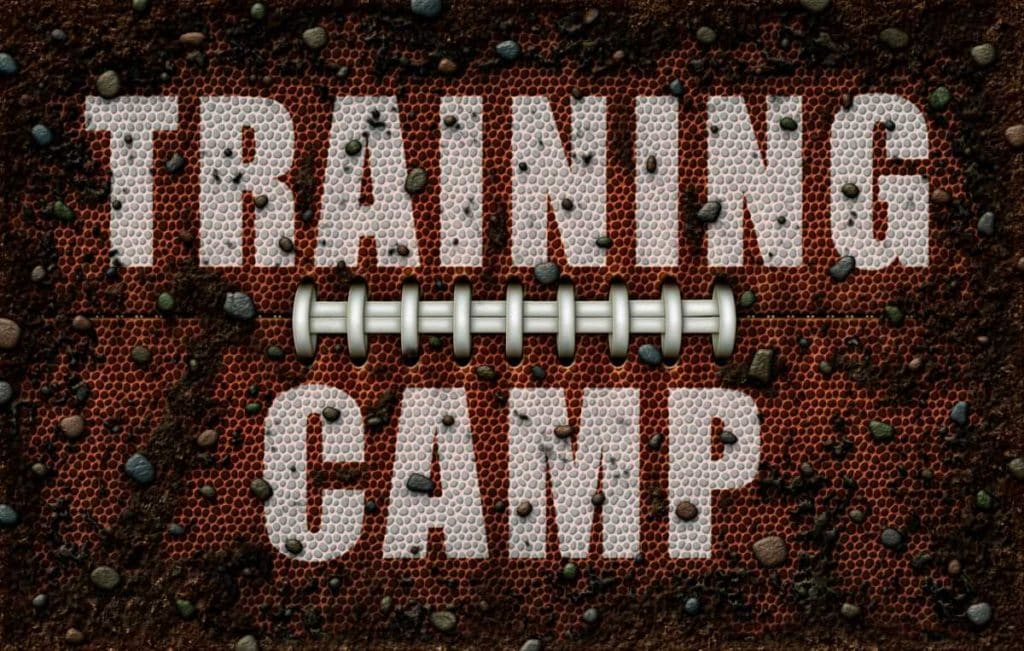So, you’re thinking that upgrading your GPA in order to get into PT school is a required or perhaps wise move, eh? Fear not. While the thought of needing to upgrade can be a tough pill to swallow (it was for me, believe me), the good news is that you can use your time upgrading to serve YOU for making life in PT school much easier, much less stressful and far more beneficial. How? Read on to learn.
To get the most out of academic upgrading so you can get into PT school, you need to develop the right mindset with your courses, master your learning and study habits, develop a good rapport with your professors, collect reference letters and keep a healthy perspective on the upgrading process.
A good prerequisite GPA is critical for getting into PT school. You want to apply with above the minimum required GPA, if you can. Many students have to upgrade to meet minimum or above minimum requirements. If you’re one of them, upgrading your GPA will actually serve you VERY well for doing better when you’re accepted – so long as you adopt the right mindset.
OVERVIEW OF TIPS:
To help you save time, you can click/tap on any of the article headlines below to instantly navigate to that particular tip and subsequent section of the article.
Tip 1: Think of this as pre-season training for PT school
Tip 2: Learn and master your study habits
Tip 3: Get to know your professors
Tip 4: Collect academic reference letters from your professors
Tip 5: Remember that your GPA is not your identity
Keep reading below for more extensive elaboration on each one of these tips!
A quick background on my GPA/course upgrading journey
Before we dive into elaborating on the above tips, I feel it’s worth quickly sharing my GPA and course upgrading journey.
As a quick background on myself, when I decided that I wanted to get into PT school, there were some hard truths I had to accept:
- My undergraduate GPA was right at the bare minimum for the coursework that I DID have.
- I didn’t have any of the pre-requisite courses in Chemistry or Physics (for nearly all PT schools in the US, you need two courses in each along with subsequent labs).
- In order to take my chem II and physics II courses, I would need to take a calculus course, which was a pre-requisite for my chem II and physics II courses
- I needed another psychology course and another biology course
- I needed to retake bio I in order to get a higher mark (originally got a C+)
- I needed a higher mark in my anatomy course
- I needed to find a way to do all of this while working and making income
Now, just so we’re clear, I stayed away from science courses in undergrad as I pursued my degree since I fully believed I would never be good at them. This is why I chose to do a bachelors in physical education rather than kinesiology – I didn’t think I’d be smart enough for the science courses (I struggled like crazy just in high school sciences).
Bottom line: I feel like I’m very qualified to write this post. This whole process took me me two-and-a-half years of academic upgrading to complete. And while it was hell to go through, it brought out the best in me.
I learned that hard work works and that when I committed myself entirely to the process that I was capable of way more than I had ever imagined.
Needless to say, I learned some amazing things about myself along the way and they helped me not only get into PT, but absolutely CRUSH it as well.
How to use upgrading to your advantage
Whether you’re apprehensive about needing to get grades in tough courses, or having to still manage life outside of school (work a job while upgrading, etc.), with the right mindset you can use this time to make life for PT school way easier. How?
Tip 1: Think of upgrading as preseason training for PT school

“All men are created equal, some work harder in preseason.” – Emmitt Smith
Many PT students struggle in their respective PT programs, but for reasons that would have never occurred had they learned some valuable lessons beforehand in their undergraduate studies.
This can be due to the fact that students oftentimes have an easier time in their undergraduate studies, and thus haven’t quite developed the skill sets needed for perseverance through challenging material and curricula. PT school is a bit of a different beast when it comes to volume of material, semester volume/credit load and application of knowledge.
As an example, PT school will require you to be rather good with time management. Having strong time management skills can drastically cut down stress levels. By knowing how to commit to your studies, carve out dedicated study time, etc., you stand way better chances of not only doing good in PT school, but actually enjoying it as well.
Might as well start practicing during your upgrading
So, if you need to upgrade some coursework in order to get into PT school, now is a good time to begin practicing the skill of time management and taking your studies seriously.
It’s also a good time to develop the mindset of developing study efficiency, figuring out how you learn best and gathering up valuable resources to have in place for when certain material proves to be challenging.
Remember, this is all temporary and the sacrifices you may need to make won’t be something that last forever. And, with the right mindset, you will be fully mentally conditioned to head into PT school with some serious mental ammunition for knowing how to work hard, efficiently and effectively.
Tip 2: Learn and master your study habits

This tip kind of continues off of the first tip. You’re going to need good study habits and know your preferred learning style(s) when it comes to your PT coursework, and life will be a whole lot easier if you’ve already figured them out before going into your PT program.
Upgrading is the perfect chance to figure out how you best learn and master your study habits
It was rather eye-opening to me heading into PT school as a mature student (age 30) and seeing just how many of my classmates didn’t know how they best studied or learned material. Many of them verbally stated this to me, and it was evident by observation that many others didn’t as well. Of course, many of them did, but I was surprised at how many didn’
Using your “upgrading days” to begin to sort this all out (if you didn’t during your undergrad days) will go a long way. And chances are, even if you know your best study habits and methods, you can always improve upon them and refine them.
Tip 3: Get to know your professors
One very wise move that you can do right at the start of upgrading is to introduce yourself to your professors and quickly share your story of why you’re in their class; let them know right from day one how serious you are about doing well in their course.
I firmly believe that you would be remiss not to take this step, mainly due to the fact that professors tend to enjoy working with students who show maturity and have their sites clearly set on the next chapter in their academic career.
Just make sure to walk the talk. By this I mean make sure you’re at every lecture, and that you’re on time for every lecture and lab. Pay attention in every class and avoid distractions. Ask questions when a concept doesn’t make sense, don’t be afraid what other students may think. Your job is to learn, not to be quiet or concerned with others think. This is your dream – don’t be afraid to fight for it!
You won’t impress your professor(s) if you say you’re serious about getting into PT school but then don’t follow through on it. But, if you walk the talk, you’ll put yourself in the driver’s seat for doing well in your upgrading courses.
Tip 4: Collect academic reference letters from your professors

Adding on from tip number three, any of your professors that you’ve introduced yourself to (and thus, who know how hard you’re willing to work in their class), will likely be more than willing to write a strong letter of reference for you at the end of the semester.
Upgrading provides a great opportunity to collect academic reference letters from your professors
This is incredibly important since regardless of which PT school(s) you plan on applying to, you will need academic reference letters from one or more of your undergraduate professors. Different schools will require a different number of academic references. At a minimum, you’ll need at least one. But, the more you collect, the better shape you’ll be in just in case you need multiple academic references.
Tip 5: Remember that your GPA is NOT your identity
Above all else, always remember that you are not defined by your GPA – it is NOT your identity!
This might sound like an unusual tip, but I’d really encourage you to keep this one in your back pocket in case you’ve got a lot of upgrading that needs to be done.
After failing to get into PT school during my first two years of applications, I found myself becoming heavily fixated on my GPA and being perpetually concerned that it wasn’t good enough. I thought about it so much that I feel like my identity got wrapped up in it a bit.
The academic world considers the GPA to largely be the dominant factor of who you are, especially when you’re just an application number on a piece of paper. It can be extremely frustrating to have so much of your future being held up within and determined by your GPA number. Believe me, I get it.
But, above all else, know that your greatness is not determined by your GPA and that there is more within you than is reflected by those numbers. Keeping this thought at the forefront of your mind as you head into (and grind through) your upgrading pursuits will help keep your spirits lifted and your mental health strong as you press onwards from here on out.
Concluding remarks
Chances are that if you’re not willing to take your upgrading seriously, you might not be ready for PT school. PT school will likely demand your best efforts, so you might as well get in the habit and mindset of working hard and being dedicated towards academic success. It will condition you so that you’ll have the mindset already in place to simply hit the ground running the second you get into PT school.
Use your time upgrading to prove to yourself that you have what it takes! The beautiful thing about doing this is that you will then head into PT school knowing that you can crush whatever is thrown your way.
You will likely know yourself better than your peers know themselves, and while they may still need to take time in PT school to figure out how to perform optimally for their academics, you’ll be well past that stage, having learned it while upgrading.
Your study habits will be finely tuned, your mind will be strong and sharp, and people will take notice as you tear through one course after another!
Grind hard. You got this.

Hi! I’m Jim Wittstrom, PT, DPT, CSCS, Pn1.
I am a physical therapist who is passionate about all things pertaining to strength & conditioning, human movement, injury prevention and rehabilitation. I created StrengthResurgence.com in order to help others become stronger and healthier. I also love helping aspiring students and therapists fulfill their dreams of becoming successful in school and within their clinical PT practice. Thanks for checking out my site!

